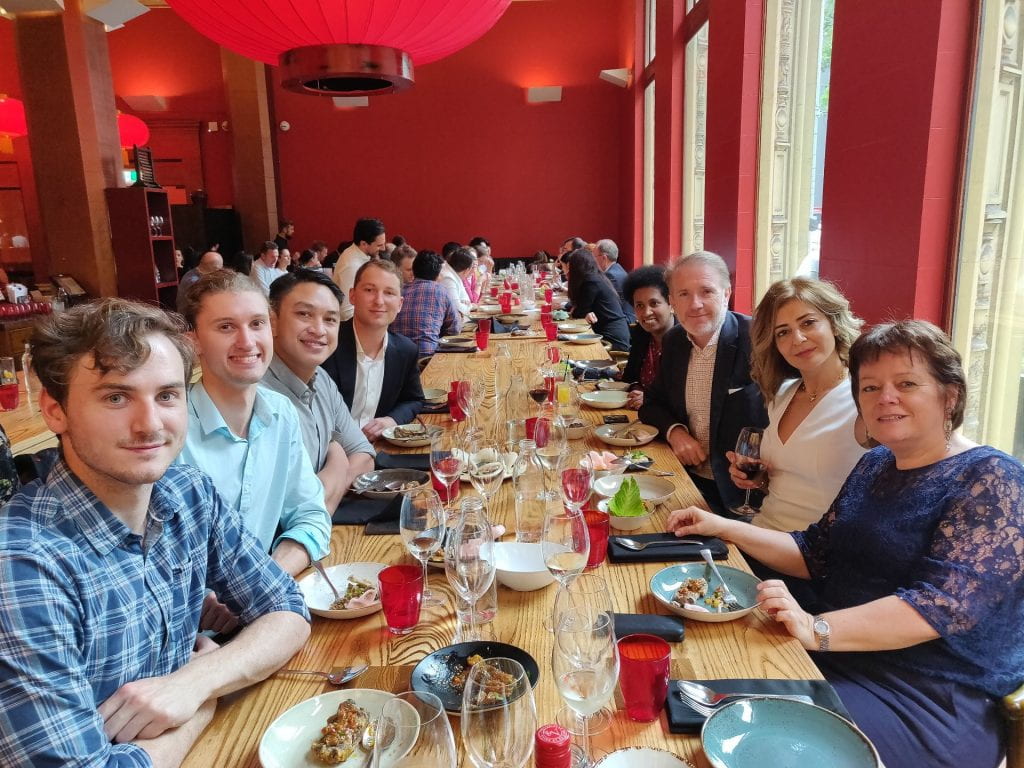RMIT has engaged RIIPEN, a company based in Canada, to provide introductions to companies for the purpose of providing our educators with industry projects their students can do online. One of the best success stories using RIIPEN so far is the effort of Jan Bruggemeier and his team with the project Strategic Storytelling and Creative Content. This was delivered as a 2 week intensive with 120 students, the largest cohort RMIT has managed so far.
Students from Professional Communication and Communication Design at the Singapore Institute of Management (SIM) were able to work in small interdisciplinary teams on communication projects for a range of Canadian companies through a global Industry Partnered Online Learning activity organised in conjunction with Global Experience. SIM students undertaking their two-week intensive were connected with these companies through the RMIT partner platform RIIPEN.
Four projects from across three companies were sourced for students to work with — 10Net Focus, Bad Dad Tea and the Women’s Economic Council. The students formed interdisciplinary groups across the disciplines of Advertising, Public Relations and Communication Design, through the development of short elevator style pitches. Despite the challenges of working in an intensive mode and receiving client feedback within tight timeframes, the students were able to produce innovative communication solutions to fit their client’s brief. This project enabled the students to gain valuable experience in working remotely with a global client, while negotiating team dynamics and conflict management.
One of the factors we have noticed determines success in attracting industry partners is the effort put in to writing the course description. Jan’s course description is a model that we like to share with others writing their description on RIIPEN for the first time. Jan’s course had 1265 views from industry partners on RIIPEN — more than any of the RMIT course descriptions so far. We decided to interview Jan to find out more about what worked and how the experience could be improved.
Jan
“We run client-based studios which are usually sourced through our own contacts or school contacts, and we have a stronger connection with them as a result. We like to keep our contacts close. A challenge with RIIPEN is that the companies’ primary connection is with RIIPEN. There is a feeling of less control in not having a face to face relationship. So success depends a lot on the personality of the academic, and not all academics are up for feeling that out of control.
We had one client drop out of our 4 clients. This happens in projects regardless of where they are sourced from – it wasn’t a personal thing. We also had an issue with feedback time where one client took a week to respond. This was despite our requirements for regular contact being written into the company conditions. Again this is normal and although inconvenient it is a good thing for students to experience. ‘Flaky’ contacts are always a risk even with our personal and school contacts.
Platform feedback
“Some of the company contacts are startups as sole operators, and it is worth being aware of the risks for this. One of our staff feared that her feedback ratings might be impacted by the client’s bad behaviour. It is unclear who can see the feedback function. One company did not want to give feedback to one with all other groups seeing that. However the feedback we received was positive. All clients and their project offerings are visible on the platform so it makes it easy to see and choose. RIIPEN offers a nice variety of companies, from corporations to not for profits. This is really helpful as we had no contacts in Singapore and needed to find something quickly as we transitioned to online.
The RIIPEN platform is good, but some features are a bit annoying. Often clients aren’t as familiar with the platform and we ended up having to teach the clients how to use it, where that is RIIPEN’s job. We started working around the platform as a result. Some clients only had one staff member on RIIPEN, so a problem arose as to how we could communicate with everyone in the company via the platform. The service from RIIPEN is amazing, they are really responsive. It was great to have the opportunity to work with professionals in North America.
Advice for doing RIIPEN at scale
“You need to have enough different clients (for example 5-6 projects per client with groups of 4). Client feedback turnaround time needs to be factored in, and you need to be aware of public holidays in both locations. It would also be good to celebrate project outcomes, potentially with some sort of award event, or to have the students and their projects featured on the RIIPEN/client’s website.”
If you are interested to take part in a virtual exchange with one of RMIT’s partner universities around the world check out Global Experiences at RMIT or contact the RMIT Global Experiences at team at global.semester@rmit.edu.au.

